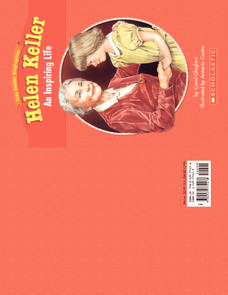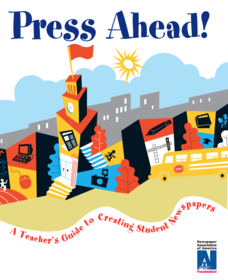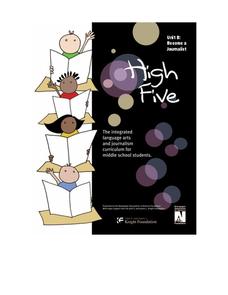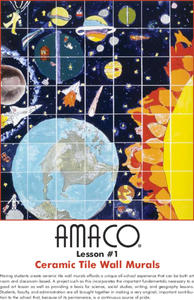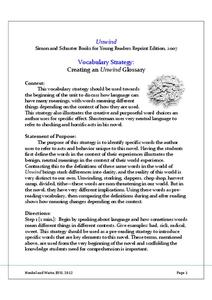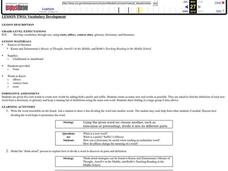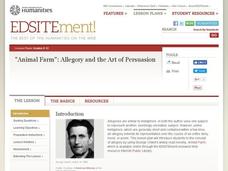Ohio Department of Education
A Glossary of Literary Terms
If you're tired of defining allusion, onomatopoeia, and satire for your language arts students, hand out a complete list of literary devices to keep the terms straight. Each term includes a definition that is easy to understand and...
Curated OER
7th Grade English/Language Arts Practice Test
The Georgia Department of Education provides practice for their Criterion-Referenced Competency Test in English/Language Arts with 30 multiple-choice questions.
K12 Reader
Glossary of Non-Violence
Make sure your class is sure of terminology when referring to the non-violent methods used in the civil rights movement. This glossary includes 19 terms paired with parts of speech and definitions.
Curated OER
Glossaries
Explore text structure with a focus on the glossary feature in informational texts. Learners read a brief introduction before examining a glossary from a text about plants. They reference it while completing four comprehension questions....
Museum of Modern Art
Modern Art and Ideas
The Museum of Modern Art provides this educators' guide to Dada and Surrealism. Featuring the works of such artists as Jean Arp, Salvador Dali, Joan Miro, and Meret Oppenheim among others, the guide is ideal for art history and...
Scholastic
Helen Keller: An Inspiring Life (Biography Mini-Book)
Inspire young readers with this printable biography of Helen Keller. Including a timeline, glossary, and realistic illustrations with supporting captions, this is a great resource for not only teaching children about this amazing...
US Department of Education
School-Home Links elling, self-to-text connections, writing lists, author
Engage families in at-home practice using this 100-page worksheet packet for elementary school English Language Arts practice. Each worksheet briefly explains the objective to parents so they can guide their child through the activity....
Newspaper Association of America
Press Ahead!
Give class members some great news! A media unit teaches individuals about ethics, parts of a newspaper, business writing, photojournalism, and more topics that have to do with the press. Full of material for a variety of learners,...
Curated OER
Whose Afraid of Contemporary Art?
Have your class create original modern art sculptures. Learners analyze and discuss "The Profile," a sculpture by Martin Puryear. They work in teams to develop a proposal for a large outdoor sculpture in the community. Presentations...
Online Publications
Become a Journalist
Explore the newspaper as a unique entity with a detailed and extended unit. The unit requires learners to consider the newspaper's role in democracy, think about ethics, practice writing and interviewing, and examine advertising and news...
American Art Clay Co., Inc.
Ceramic Tile Wall Murals
Science, social studies, language arts, and art classes work together with administrators to produce a permanent, ceramic tile wall mural to install at their school.
Curated OER
Unwind: Vocabulary Strategy, Creating an Unwind Glossary
Prior to reading Unwind, Neal Shusterman's 2007 young adult science fiction novel, class members research the common definition of words drawn from the novel that will come to have a very different meaning to them as they are drawn into...
Pittford Schools
Literary Devices, Techniques, and Elements
What's the difference between a speaker and an author? What's an example of anthropomorphism? Clarify the meanings of literary devices, elements, and techniques with a comprehensive glossary of terms.
National Gallery of Canada
Mastering One-Point Perspective
Cover one-point perspective through observation and practice. Class members examine several works of art that use one-point perspective, look at magazine images to find the vanishing points and horizon lines, and draw their own city...
Curated OER
Vocabulary Development
What is a root word? What is a prefix? Suffix? Use these questions to spark a discussion amongst your language art learners. Then, start by writing the word irresistible on the board and have teams of learners attempt to create new words...
Curated OER
The Body Talks
Young historians examine the gestures of human subjects represented in Mannerist, Baroque and Renaissance paintings. After they play charades and attempt to match dialogue with body language, learners create a drawing that includes...
Art Institute of Chicago
Lesson Plan: A Writer’s Odyssey
Looking for a fresh approach to an end-of-unit project for The Odyssey? Check out a resource that has class members write their own hero's journey short story and then craft an illustration that depicts their tale. Apollonio di...
Curated OER
Identifying Text Features of a Self-Written Fable
Make learning the parts of a book fun by having pupils construct their own glossary entries, table of contents, and title page. Beginning with a review of text features and a hunt for examples, kids use previously written fables to...
National Endowment for the Humanities
Animal Farm: Allegory and the Art of Persuasion
Introduce your class members to allegory and propaganda with a series of activities designed to accompany a study of George Orwell's Animal Farm. Readers examine the text as an allegory, consider the parallels to collective farms and the...
Curated OER
"Pray, Why Speakest Thou Thusly?"
Examine popular language and slang and how they have changed over the course of American history. Conduct Internet research, use an online interactive Colonial House website to translate 17th century language into 21st century language,...
Curated OER
Using the Glossary
Fifth graders explore the glossary. In this language arts lesson, 5th graders define unknown words in a text by using the glossary. Students read a text and use the glossary to find unknown words.
Curated OER
Introduce Vocabulary: Into the A, B, Sea (Rose)
As budding readers learn about the ocean, they'll get practice with the alphabet and new vocabulary words (cling, nab, prey, slumber, and thrive) in context. Read Deborah Rose's book Into the A, B, Sea, which includes a glossary in the...
Saddleback Educational Publishing
The Jungle Book: Study Guide
Delve into The Jungle Book by Rudyard Kipling with a helpful study guide. Crossword puzzles, comprehension questions, character descriptions, chapter summaries, and vocabulary exercises connect readers with the classic text of a boy and...
Montclair Art Museum
Eric Carle: Animals and Friends
Celebrate Eric Carle’s beloved children’s books, especially those about animals. Teachers and readers alike engage in Carle’s books as they explore the art and color in each of his stories, and how these elements support comprehension.







